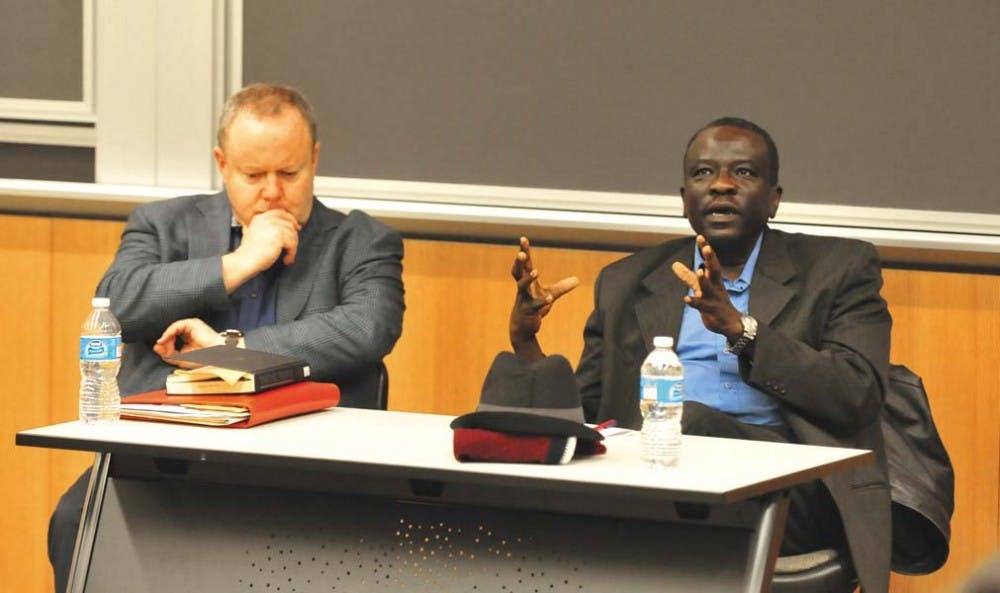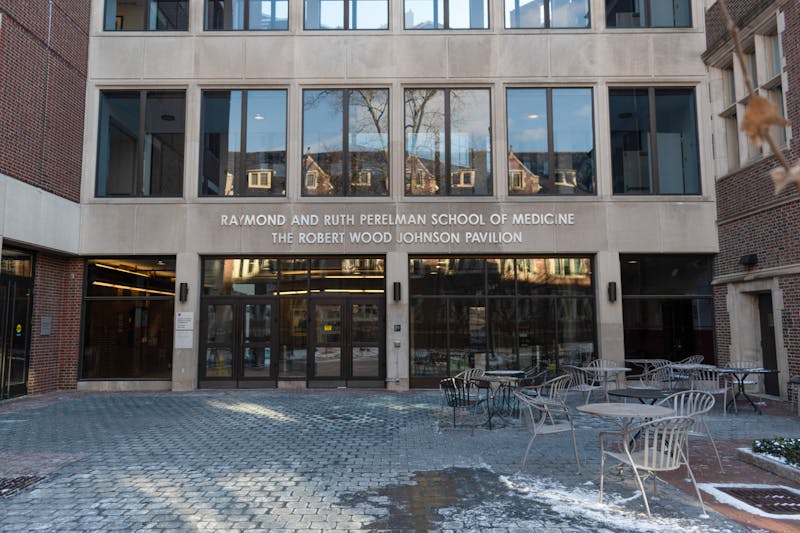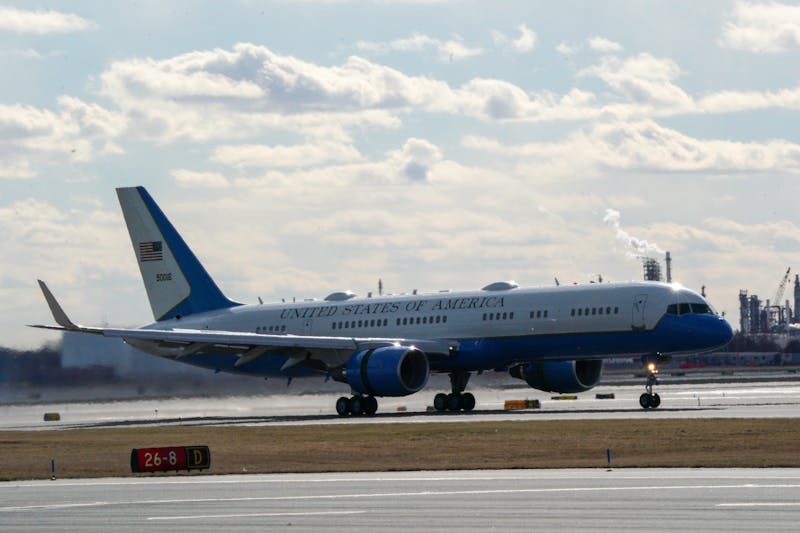
Moral Voices, a student organization for raising awareness on global human rights violations, sponsored a talk between two international experts on the range of issues plaguing Sudan and the recently formed independent nation of South Sudan.
The event featured a discussion between Lauder professor of political science Brendan O’Leary and Associate Director of the Africa Center Ali Ali-Dinar. The discussion was fueled by a few specific questions by the moderator — College sophomore and Moral Voices Fellow Amy Cass — which veered off in many different directions.
O’Leary was skeptical that certain issues between Sudan and South Sudan would ever be able to reach lasting agreements. These include the Darfur crisis, the standoff on oil production and bickering among the numerous armed factions formed independently of the government. Clarifying this quagmire made up a large part of the discussion.
“Movement in any one of these issues would move things forward,” O’Leary said.
According to Dinar, the halt in oil production, and subsequently these nations’ revenues, have robbed Sudan of more than 95 percent of its total income.
O’Leary, in turn, assessed the situation saying that “the whole region might starve due to the shortage of money, but the South says we can starve better.”
Dinar, though generally in agreement with O’Leary, focussed more on the day-to-day reality of the complications involved and that the “international community ought not to set the standards too high” for possible solutions.
On recent agreements between the north and south, he said, “Since 1955, there has been continuous war. People don’t easily forget these incidents and move forward. Give [the agreement] a couple of months and things will revert back to what it was.”
Dinar specifically wants the international community to work with the groups involved and to deliver aid to those who require it most.
O’Leary believes, however, that the Sudanese president, Omar al-Bashir, also has to be given strong and stern words. “Stop with the fantasies and make it clear that the conduct by the north is unacceptable,” he said, in reference to the armed displacement that has existed in Darfur for more than 10 years.
O’Leary himself participated in the original peace negotiations for the Darfur crisis, and he said that while “things didn’t change immediately, the provisions for peace and unification in the draft [of the peace negotations] looked rather promising.”
There has been since then another round of negotiations and agreements, but as O’Leary bleakly observed, “Number two is worse than number one!”
Students in attendance found Dinar’s local insight especially informative — including his remarks on the mentalities of independent armed groups, quarrelling between communities in Darfur and a new search for gold, which Dinar said to be “the result of the loss of oil revenue.”
College junior Dau Jok, who had asked several questions of the speakers, took quite a liking to the forum. “They are the experts of the field,” he said. “The [discussion] was very good and revealing.”
Next Wednesday, March 20, Moral Voices will present a keynote lecture with notable speakers John Prendergast, co-founder of the Enough Project, and John Bul Dau, a “Lost Boy of Sudan.”
The Daily Pennsylvanian is an independent, student-run newspaper. Please consider making a donation to support the coverage that shapes the University. Your generosity ensures a future of strong journalism at Penn.
DonatePlease note All comments are eligible for publication in The Daily Pennsylvanian.







